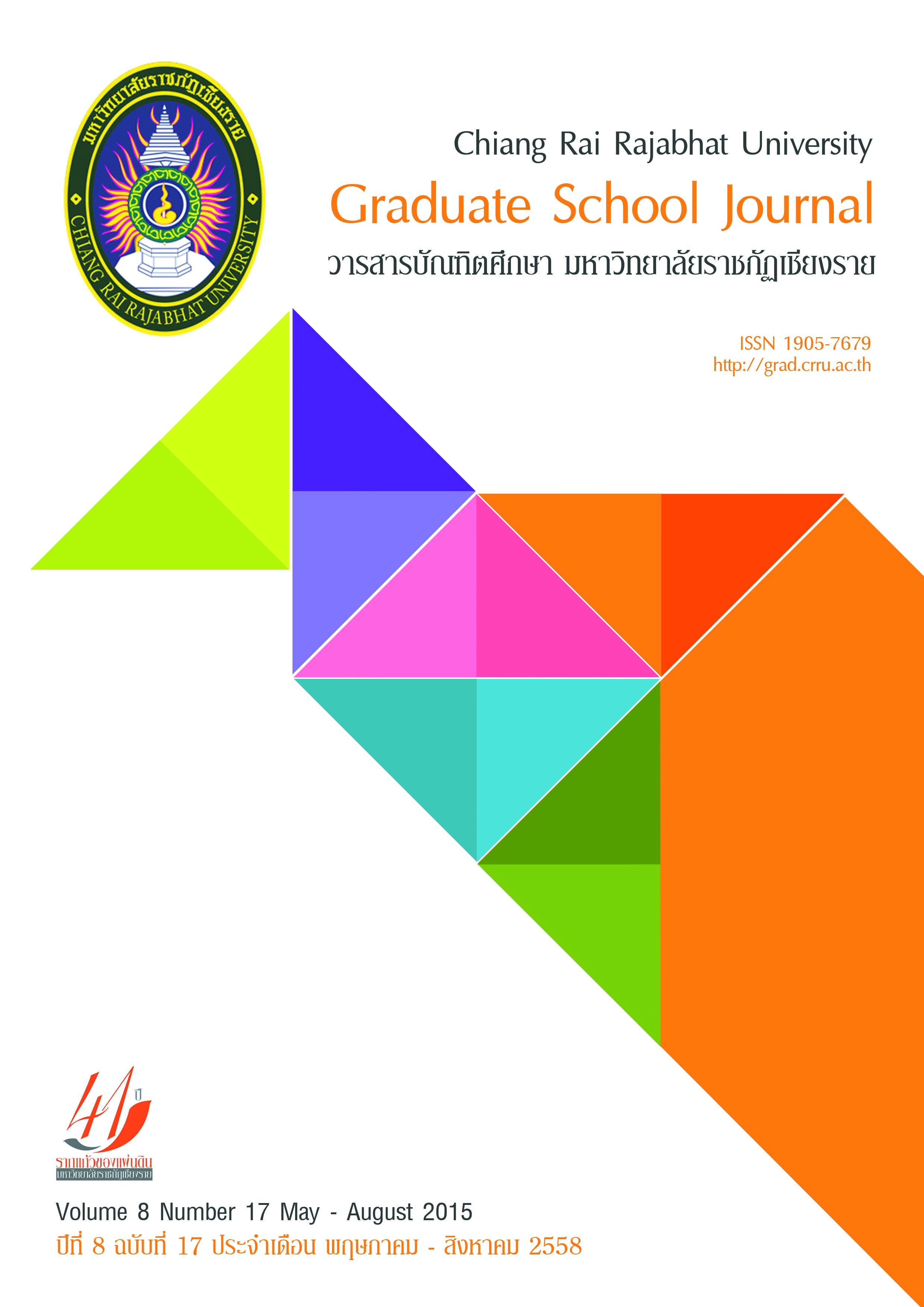การพัฒนาหลักสูตรสาระการเรียนรู้เพิ่มเติมรายวิชาภูมิปัญญาชาวบ้านท้องถิ่นเพชรบูรณ์ กลุ่มสาระการเรียนรู้สังคมศึกษา ศาสนา และวัฒนธรรม ชั้นมัธยมศึกษาปีที่ 2
Main Article Content
บทคัดย่อ
The Development of Additional Course Curriculum on Phetchabun Local Wisdom With Social Science, Religion, and Cultural Subjects
This research aimed to develop selective additional course curriculum and learning an effectiveness of the study plan, to compare the student’s achievements with the pre-test and post-test after using the additional course curriculum on Phetchabun local wisdom with social science, religion, and cultural subjects. Matthayomsuksa two student are used in the study whose attitudes towards the activity-based additional course curriculum on Phetchabun local wisdom with social science, religion, and cultural subjects are tested. The sample used in this study consists of the director of the school, vice president for academic affairs, teachers for social science, religion, and cultural subjects, the board of education, parents of Matthayomsuksa two students in Petch Pittayakon school and supervisors under the Phechabun Secondary Education Service Area Office 40, consisting of 114 people in total. The instruments used in this research were the curriculum with additional courses on Phetchabun local wisdom with social science, religion, and cultural subjects, a study plan, achievement tests, and the attitude towards the learning activity. Data was analyzed using mean (), standard deviation (S) and percentage.
The research results were that the curriculum with additional Phetchabun local wisdom learning subjects, Social Science, Religion, and Cultural Strands of Matthayomsuksa two had the highest level. The study plans had an efficiency of 82.79/81.42, the post-test found higher achievement than the pre-test at the significance level of 0.05. The students’ attitude towards the additional course curriculum on Phetchabun local wisdom with social science, religion, and cultural subjects was overall high to the highest level. For those related with development of the curriculum, had time to teach the course with the appropriate basic education core curriculum in 2008. The content was appropriate and beneficial for its use in everyday life and fond to be appropriate to the context of education.
Article Details
บทความที่ได้รับการตีพิมพ์เป็นลิขสิทธิ์ของวารสารมหาวิทยาลัยราชภัฎเชียงราย
ข้อความที่ปรากฏในบทความแต่ละเรื่องในวารสารวิชาการเล่มนี้เป็นความคิดเห็นส่วนตัวของผู้เขียนแต่ละท่านไม่เกี่ยวข้องกับมหาวิทยาลัยราชภัฎเชียงราย และคณาจารย์ท่านอื่นๆในมหาวิทยาลัยฯ แต่อย่างใด ความรับผิดชอบองค์ประกอบทั้งหมดของบทความแต่ละเรื่องเป็นของผู้เขียนแต่ละท่าน หากมีความผิดพลาดใดๆ ผู้เขียนแต่ละท่านจะรับผิดชอบบทความของตนเองแต่ผู้เดียว


